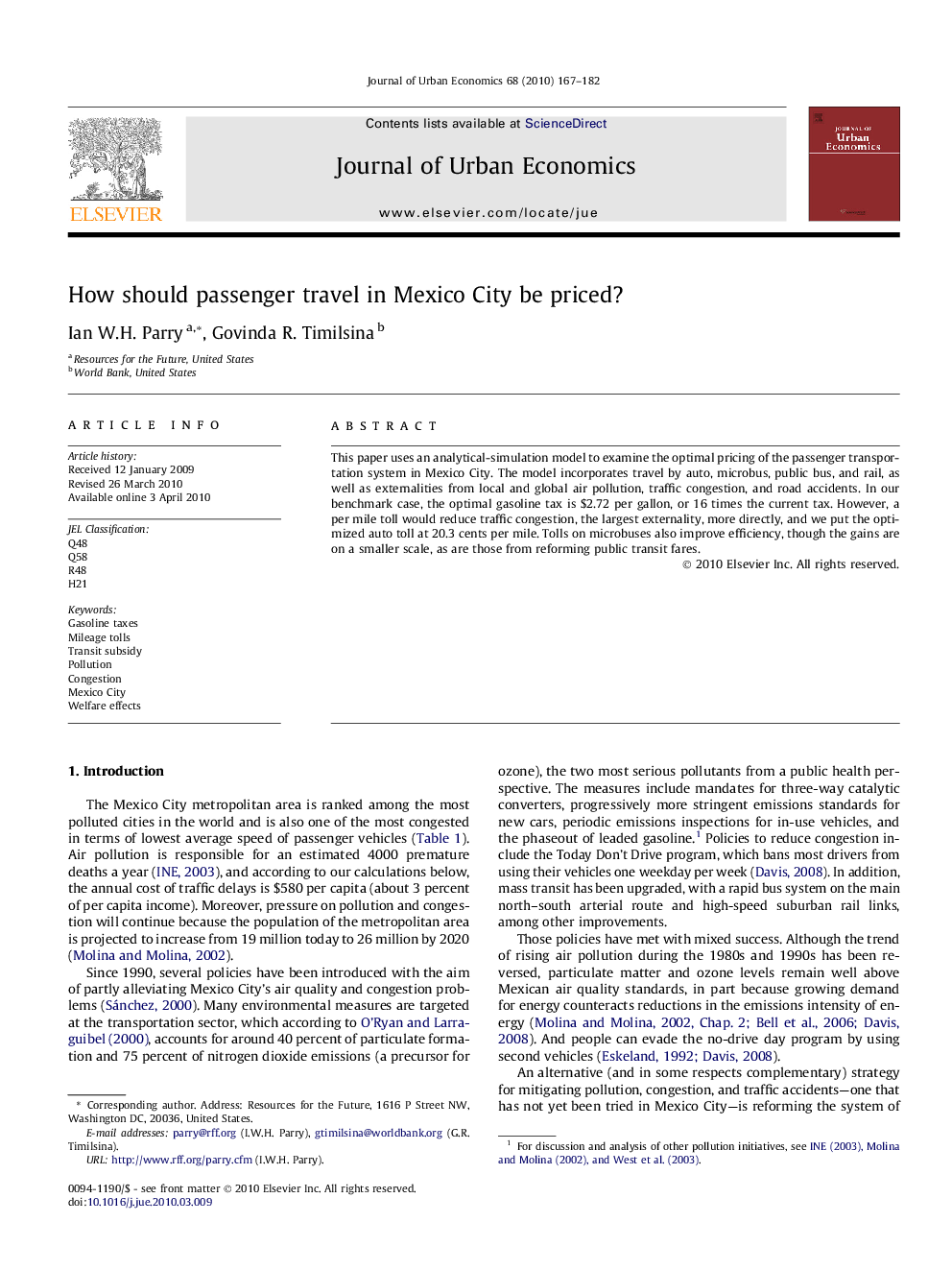| Article ID | Journal | Published Year | Pages | File Type |
|---|---|---|---|---|
| 971286 | Journal of Urban Economics | 2010 | 16 Pages |
Abstract
This paper uses an analytical-simulation model to examine the optimal pricing of the passenger transportation system in Mexico City. The model incorporates travel by auto, microbus, public bus, and rail, as well as externalities from local and global air pollution, traffic congestion, and road accidents. In our benchmark case, the optimal gasoline tax is $2.72 per gallon, or 16 times the current tax. However, a per mile toll would reduce traffic congestion, the largest externality, more directly, and we put the optimized auto toll at 20.3 cents per mile. Tolls on microbuses also improve efficiency, though the gains are on a smaller scale, as are those from reforming public transit fares.
Related Topics
Social Sciences and Humanities
Economics, Econometrics and Finance
Economics and Econometrics
Authors
Ian W.H. Parry, Govinda R. Timilsina,
